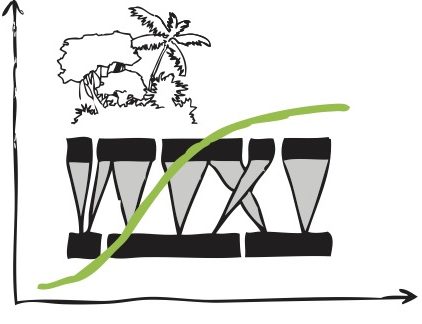Our PhD candidate Timo Metz (SP 1) presented one of our first results in the Reassembly Unit as a poster at an international meeting of the German Ecological Society (GFÖ) and two other organizations (SFE2, EEF) in Metz (November 24th, 2022). Timo has modelled the role of obligate vs non-obligate mutualists in mutualism recovery. He found that non-obligate and more generalised mutualists are particularly good pioneers, speeding up the recovery of more complex mutualistic networks. Examples of such non-obligate mutualists include frugivorous birds or pollinators that do not depend on their plant mutualists and also feed on other resources elsewhere, or plants that do not depend on services by such animals. The study is currently submitted as a paper and available as a preprint on the bioRxiv server here.


